“Dr. Campbell?”
He turned and scanned the room, probably expecting to see one of his students wanting to beg for an extension on an assignment. I raised a hand and approached him.
“Bruno Costanzo. I emailed you yesterday.”
“Of course.” Campbell was a thin, pale man in his early thirties. He shook my hand, but he was obviously taken aback. “You didn’t mention that you were in Wellington.”
I made a dismissive gesture. “I was going to, but then it seemed a bit presumptuous.” I didn’t spell it out, I just left him to conclude that I was as ambivalent about this whole inconsistency nonsense as he was.
If fate had brought us together, though, wouldn’t it be absurd not to make the most of it?
“I was going to grab some of those famous scones,” I said; the seminar announcement on the web had made big promises for them. “Are you busy?”
“Umm. Just paperwork. I suppose I can put it off.”
As we made our way into the tea room, I waffled on airily about my holiday plans. I’d never actually been to New Zealand before, so I made it clear that most of my itinerary still lay in the future. Campbell was no more interested in the local geography and wildlife than I was; the more I enthused, the more distant his gaze became. Once it was apparent that he wasn’t going to cross-examine me on the finer points of various hiking trails, I grabbed a buttered scone and switched subject abruptly.
“The thing is, I heard you’d devised a more efficient strategy for searching for a defect.” I only just managed to stop myself from using the definite article; it was a while since I’d spoken about it as if it were still hypothetical. “You know the kind of computing power that Dr. Tierney and I had to scrounge up?”
“Of course. I was just an undergraduate, but I heard about the search.”
“Were you one of our volunteers?” I’d checked the records, and he wasn’t listed, but people had had the option of registering anonymously.
“No. The idea didn’t really grab me, at the time.” As he spoke, he seemed more discomfited than the failure to donate his own resources twelve years ago really warranted. I was beginning to suspect that he’d actually been one of the people who’d found the whole tongue-in-cheek conjecture that Alison and I had put forward to be unforgivably foolish. We had never asked to be taken seriously—and we had even put prominent links to all the worthy biomedical computing projects on our web page, so that people knew there were far better ways to spend their spare megaflops—but nonetheless, some mathematical/philosophical stuffed shirts had spluttered with rage at the sheer impertinence and naivety of our hypothesis. Before things turned serious, it was the entertainment value of that backlash that had made our efforts worthwhile.
“But now you’ve refined it somehow?” I prompted him, doing my best to let him see that I felt no resentment at the prospect of being outdone. In fact, the hypothesis itself had been Alison’s, so even if there hadn’t been more important things than my ego at stake, that really wasn’t a factor. As for the search algorithm, I’d cobbled it together on a Sunday afternoon, as a joke, to call Alison’s bluff. Instead, she’d called mine, and insisted that we release it to the world.
Campbell glanced around to see who was in earshot, but then perhaps it dawned on him that if the news of his ideas had already reached Sydney via Rome and Zurich, the battle to keep his reputation pristine in Wellington was probably lost.
He said, “What you and Dr. Tierney suggested was that random processes in the early universe might have included proofs of mutually contradictory theorems about the integers, the idea being that no computation to expose the inconsistency had yet had time to occur. Is that a fair summary?”
“Sure.”
“One problem I have with that is, I don’t see how it could lead to an inconsistency that could be detected here and now. If the physical system A proved theorem A, and the physical system B proved theorem B, then you might have different regions of the universe obeying different axioms, but it’s not as if there’s some universal mathematics textbook hovering around outside spacetime, listing every theorem that’s ever been proved, which our computers then consult in order to decide how to behave. The behavior of a classical system is determined by its own particular causal past. If we’re the descendants of a patch of the universe that proved theorem A, our computers should be perfectly capable of disproving theorem B, whatever happened somewhere else fourteen billion years ago.”
I nodded thoughtfully. “I can see what you’re getting at.” If you weren’t going to accept full-blooded Platonism, in which there was a kind of ghostly textbook listing the eternal truths of mathematics, then a half-baked version where the book started out empty and was only filled in line-by-line as various theorems were tested seemed like the worst kind of compromise. In fact, when the far side had granted Yuen, Alison, and I insight into their mathematics for a few minutes in Shanghai, Yuen had proclaimed that the flow of mathematical information did obey Einstein locality; there was no universal book of truths, just records of the past sloshing around at lightspeed or less, intermingling and competing.
I could hardly tell Campbell, though, that not only did I know for a fact that a single computer could prove both a theorem and its negation, but depending on the order in which it attacked the calculations it could sometimes even shift the boundary where one set of axioms failed and the other took over.
I said, “And yet you still believe it’s worth searching for an inconsistency?”
“I do,” he conceded. “Though I came to the idea from a very different approach.” He hesitated, then picked up a scone from the table beside us.
“One rock, one apple, one scone. We have a clear idea of what we mean by those phrases, though each one might encompass ten-to-the-ten-to-the-thirty-something slightly different configurations of matter. My ‘one scone’ is not the same as your ‘one scone.’”
“Right.”
“You know how banks count large quantities of cash?”
“By weighing them?” In fact there were several other cross-checks as well, but I could see where he was heading and I didn’t want to distract him with nit-picking.
“Exactly. Suppose we tried to count scones the same way: weigh the batch, divide by some nominal value, then round to the nearest integer. The weight of any individual scone varies so much that you could easily end up with a version of arithmetic different from our own. If you ‘counted’ two separate batches, then merged them and ‘counted’ them together, there’s no guarantee that the result would agree with the ordinary process of integer addition.”
I said, “Clearly not. But digital computers don’t run on scones, and they don’t count bits by weighing them.”
“Bear with me,” Campbell replied. “It isn’t a perfect analogy, but I’m not as crazy as I sound. Suppose, now, that everything we talk about as ‘one thing’ has a vast number of possible configurations that we’re either ignoring deliberately, or are literally incapable of distinguishing. Even something as simple as an electron prepared in a certain quantum state.”
I said, “You’re talking about hidden variables now?”
“Of a kind, yes. Do you know about Gerard ‘t Hooft’s models for deterministic quantum mechanics?”
“Only vaguely,” I admitted.
“He postulated fully deterministic degrees of freedom at the Planck scale, with quantum states corresponding to equivalence classes containing many different possible configurations. What’s more, all the ordinary quantum states we prepare at an atomic level would be complex superpositions of those primordial states, which allows him to get around the Bell inequalities.” I frowned slightly; I more or less got the picture, but I’d need to go away and read ‘t Hooft’s papers.
Читать дальше

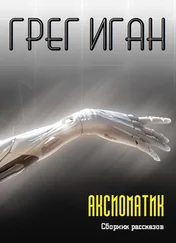
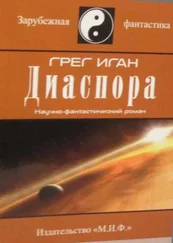
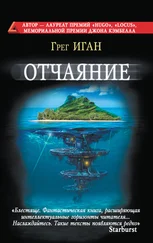
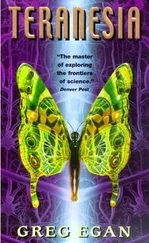
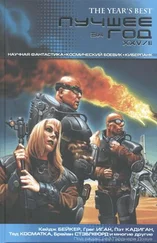
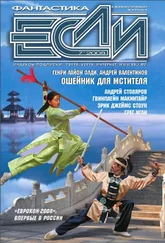
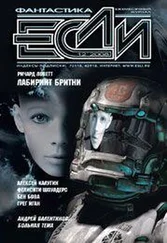
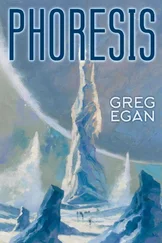
![Грег Иган - Рассказы [компиляция]](/books/419837/greg-igan-rasskazy-kompilyaciya-thumb.webp)
